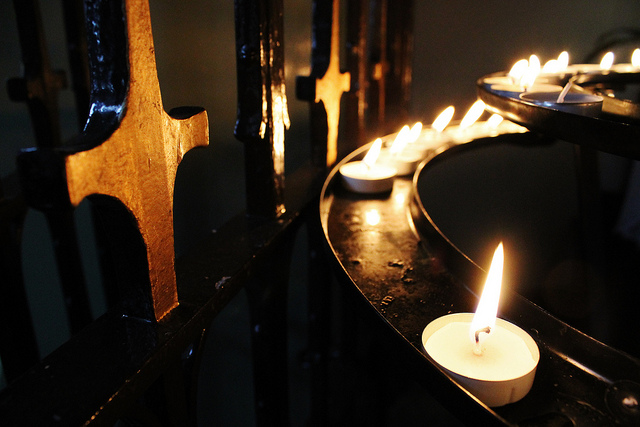What you do reveals who you are.
The last few weeks have certainly reminded us of this truth. The many manifestations of the meaning and ministry of Dr. Martin Luther King, Jr. give testimony to someone who knew, deeply, this truth.
But more than walk your talk, your actions are revelations of your true identity — who you are at your core.
The Gospel writers got this truth. It’s frequently helpful to place the four evangelists side by side for comparison when it comes to preaching. Now I know, many of you would rather poke forks in your eyes than have to engage in a redaction criticism exercise in preparation for a sermon. But in the case of Jesus’ first public act in his ministry according to each Gospel? Well, this is the big reveal. You want to know who Jesus is and not wait until the end of the story? Then take a look at his first public act in each of the Gospels and then ask, “according to that, just who is Jesus anyway?” Matthew? The Sermon on the Mount. Jesus — the teacher extraordinaire. Luke? A well-received homily in his hometown until people realize to whom he was actually referring when he talked about the poor and the oppressed. John? A sign of abundance. Yes, water into wine is pretty great, especially if you live in Minnesota and want a nice bottle of Chianti to go with your pasta on a Sunday evening. But the main issue — 6 jars, 20-30 gallons, filled to the brim, of the best wine, when you least expect it.
And Mark? An exorcism. What does that reveal about Jesus?
That he was the first Father Karras? That Jesus is best remembered as Jesus, the Exorcist, and not Jesus, the Teacher, the Shepherd, the Savior, the King?
We would do well to remember how this Gospel starts — in the wilderness with the heavens ripping apart.
Who is Jesus? A boundary breaker, which an exorcism confirms exponentially.
And Jesus reveals a boundary breaking God. We will see this all over Mark. Each and every boundary we try to put in place, we think is in place, even that which we perceive as impenetrable, God bursts through. Political, social, religious, ethic, racial, sexual, gendered, cosmic, even if we are honest, the final boundary we persist in thinking is beyond God’s ability to shatter — death.
As a result, Jesus the Exorcist seems the only logical first ministry act for Jesus in Mark — not a sermon, not a miracle, not even a healing. But stepping into the realm of opposing supremacies, the world of other spirits, the potent power of possession and saying, “God is here;” breaking through the barrier that holds at bay the unclean, the evil of the universe, the places and spaces where it seems God could never be, the very presence of the opposite of God.
Because what does the good news/Gospel of Jesus Christ really mean (Mk 1:1)? Mark isn’t just making stuff up. Mark knows Isaiah. And what is the good news, the gospel in Isaiah 40:9 and 52:7? The herald of good tidings, that is, the one who brings good news says, “Your God reigns. Your God is here.” This is the good news. This is the meaning of the heavens being ripped apart, a suffering Messiah, death on a cross, and an empty tomb. When all looks that God is absent? God is present. Your God is here.
Yet, perhaps this sounds good but is rarely believed. Indeed, there will be people sitting in your pews who will say in response to your well-meaning words, “Preacher, that’s a load of crap. As far as I can tell, God is nowhere to be seen.” And they have every reason for thinking that doubt, voicing that disbelief. In fact, it will make profound sense. So what do you preach in a sermon that promises, “But wait, your God is here! I know it doesn’t look like it, but it’s true! I really is!” when you know the response could very well be, “Well, you are a big liar.” What do you say to convince them that Mark knew what he was talking about, when you know their eyes will look away in shame and believe otherwise? Why should they heed a prophet such as you (Deut 18:19)?
You tell the truth. You be the prophet. That’s what prophets do: “I know, I know. I know exactly what you are going to say. I do. Because I say it, too.” And you mean it because you know it. “Where is God in all that possesses me? in my depression, my addiction, my disease? in my loss, my grief, my sorrow? in my own attraction to other gods (Deut 18:20)?
What do you say? “Your God is here. Your God is here. Your God is here.” Maybe that is all you can say. You voice the disbelief. You acknowledge the doubt. You respect and tend the disappointment and despair.
And still, you utter the truth.
Karoline

